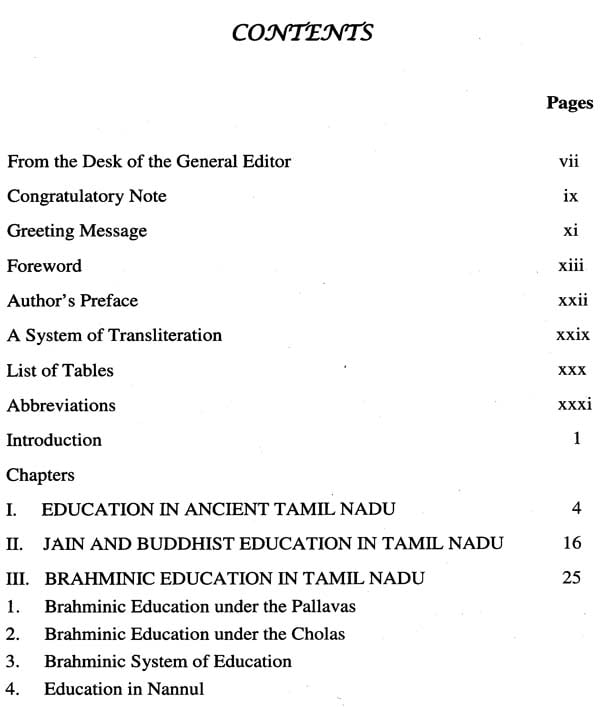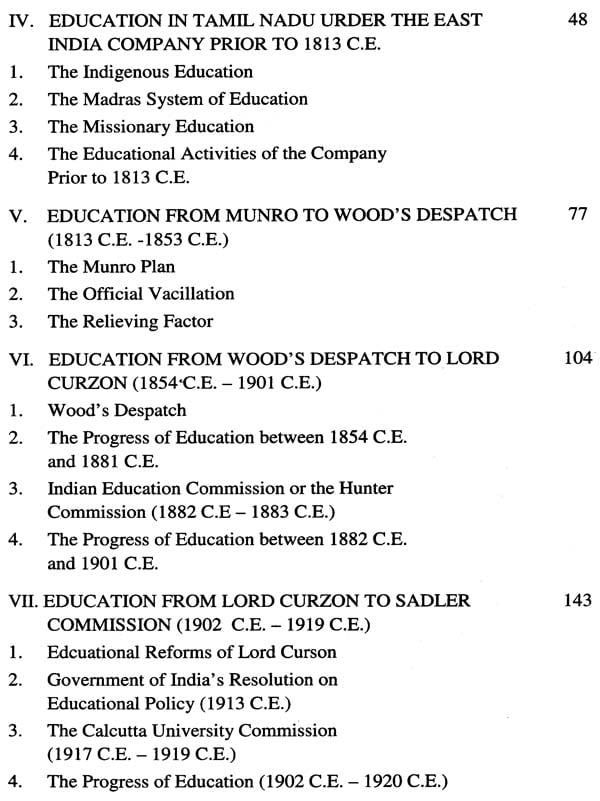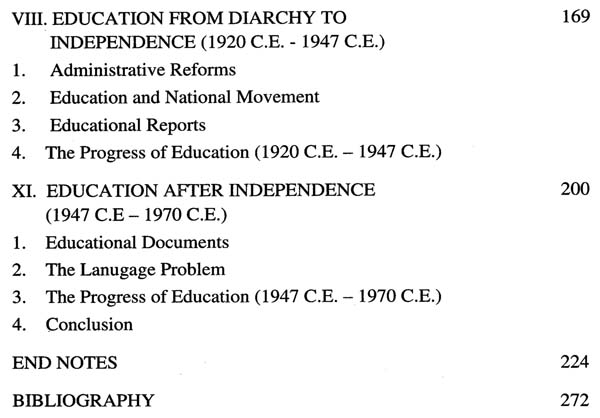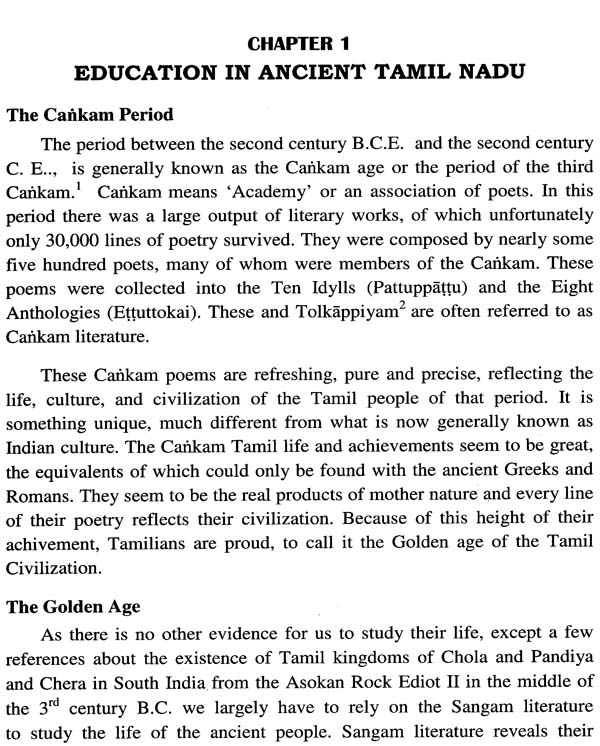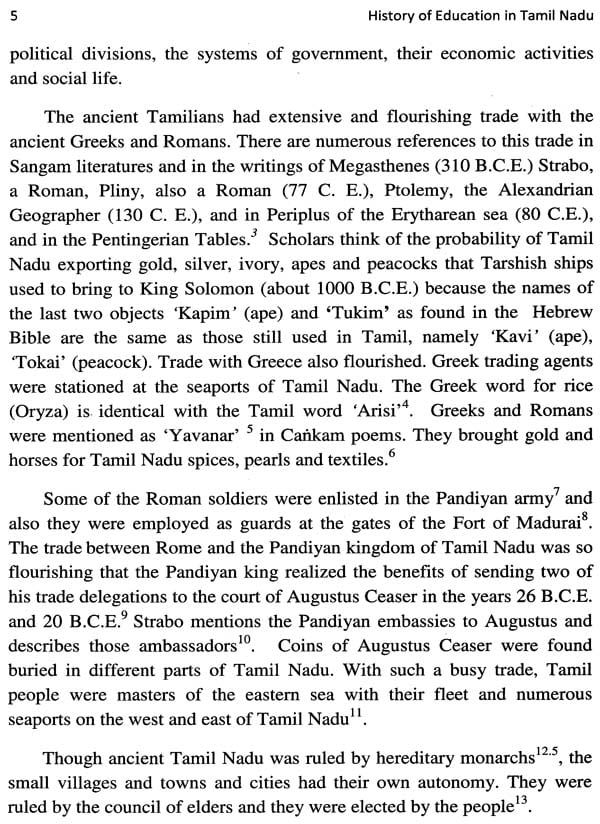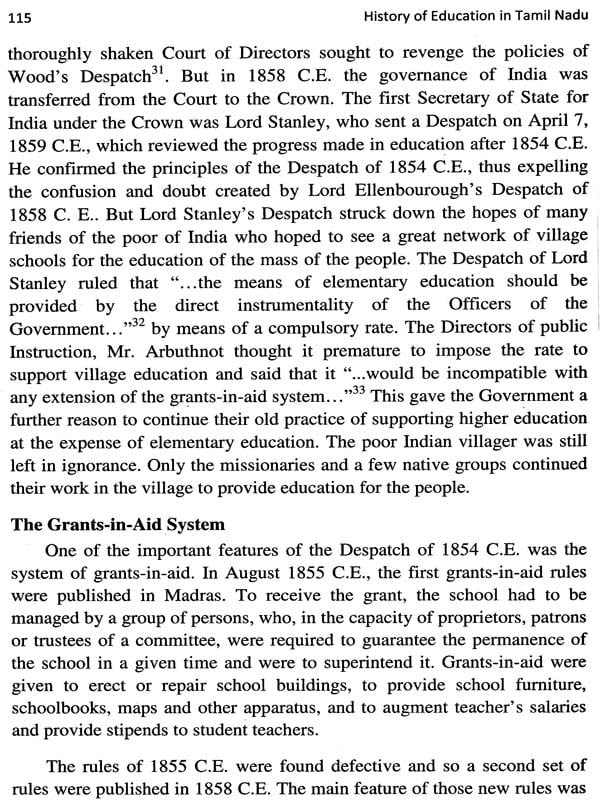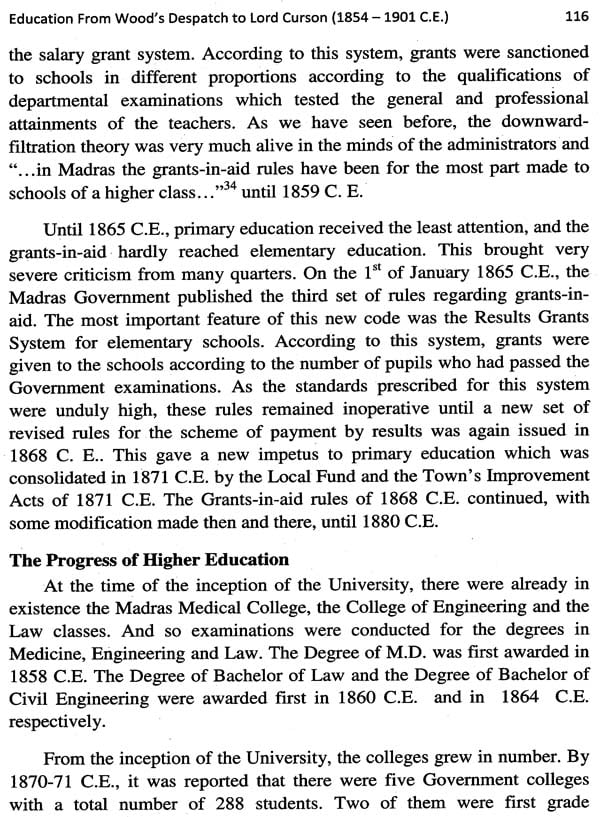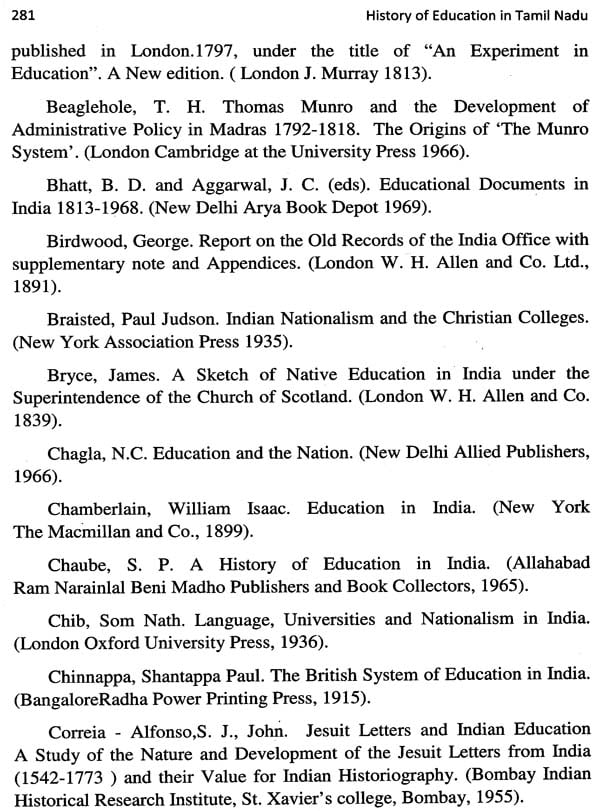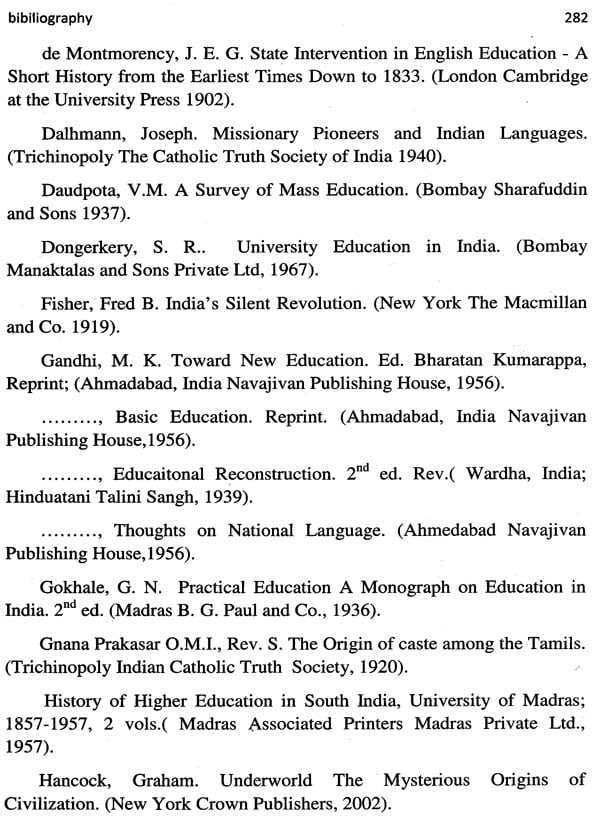
History of Education in Tamil Nadu (From Ancient Times to 1970)
Book Specification
| Item Code: | NAY937 |
| Author: | Francis S. Muthu |
| Publisher: | Institute of Asian Studies, Chennai |
| Language: | English |
| Edition: | 2020 |
| ISBN: | 9788187892786 |
| Pages: | 291 |
| Cover: | PAPERBACK |
| Other Details | 9.50 X 7.50 inch |
| Weight | 640 gm |
Book Description
He is one of the founders of the Chicago Tamil Sangam in 1969, the and, as a matter of fact, the first association for the South Indians Founder / President of the International Institute of Tamil Culture Inc. He is also the Editor- in- Chief and publisher of the International Culture & civilization, which is the revival and republication of 'Tan and published by the late internationally known Tamil scholar, and International Association of Tamil Research ( IATR ),Rev. Xavier S. known as Thani Nayaga Adigalar.
Dr. Francis Muthu was the Secretary General of IATR. Upon his in the 9th Conference held in Kuala Lumpur in 2015, the 10th International - Seminar on Tamil Studies was held in Chicago on July, 4th - sponsored by IATR and co- sponsored by the Federation of Tamil America (FeTNA) and the Chicago Tamil Sangam. It was a very SUCCE which gave primary importance to scientific approach to the study the Tamils, Tamil language, culture and civilization. Dr. Francis S.11 Academic Committee for the Conference. The General Body of IAT the 10th International Conference-Seminar in Chicago elected him Presidents of IATR. He is also Chair of the IATR- USA Branch.
Recent excavations at a place called Keezhadi in Tamilnadu firmly reveal that as early as the sixth century B.C. the Tamils gave prominence to literacy of a high standard. This historical truth is corroborated by more than one Sangam classic. It is quite evident that besides having large towns, capital cities and a complex social structure, they had developed a fairly advanced culture long before the arrival of the Aryans. Unlike any other race in the world of that time including the much - praised Greeks and Romans, the Tamils believed in the oneness of mankind eschewing the divisions based on race, religion, nation, colour, caste, creed and language.
When I came to Loyola University of Chicago, USA, for my doctoral degree, I continued my research on the history of education in Tamil Nadu using the modern historical methods. The educational documents and books in the Regenstein library of the University of Chicago and in the Library of Congress in Washington, D. C. were very helpful. My special thanks to the librarians of the South Asian section in the Regenstein Library of the University of Chicago. I decided to submit the history of education in Tamil Nadu for my master's degree, even though I had already started the empirical research for my doctoral degree in sociology of education focusing on education and social mobility in Tamil Nadu using sociological and statistical methodologies.
Ancient Tamil Nadu extended over, the entire Indian peninsula with the Vankata hills, (the Tirupati hills in Andhra Pradesh) as its northern border. Southern India is geologically the more ancient part of India and it was the cradle of the most ancient civilization in India. The classical or Cankam period, from 3rd century B.C.E. to 3rd century C.E. was the golden age of Tamil Nadu. The great culture and civilization of Ca/11(am Tamils was unique in the cultural history of India. It was also a period of great literary activity and every line of the classical poems reflects this great civilization. Life was secular, humanistic and optimistic and this was in turn the basis of their educational philosophy. Everyone in their casteless society sought education without restriction. The first chapter of this book deals with the educational ideas of the ancient or the classical period of Tamil Nadu.
By the end of the third century of the Christian era the cultural conquest of Tamil Nadu by Northern Indian religions began.
Book's Contents and Sample Pages
